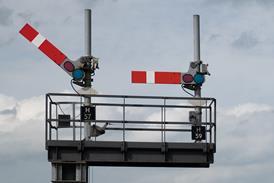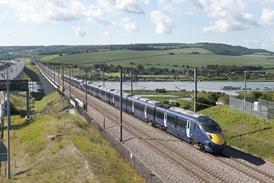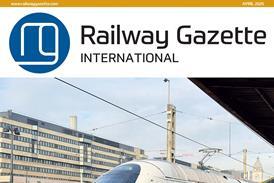Urban rail news in brief - November 2008
By Railway Gazette International19 November 2008

Praha city council approved the extension of metro Line A to Ruzyne Airport on September 18. Construction of the 13 km route from Dejvicka to Ruzyne, which will have nine stations, is due to begin next year and be completed by 2018, at a cost of KC20bn.
Already have an account? LOG IN
To continue…
You’ve reached your limit of content for the month
Get enhanced access to Railway Gazette news and weekly newsletters.

For almost 200 years, the Railway Gazette Group has been the leading provider of news, analysis and intelligence for the international railway industry. Our independent and authoritative content is read by operators, regulators and the supply industry in over 140 countries using a variety of tailored subscription packages.
Site powered by Webvision Cloud



